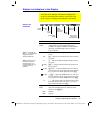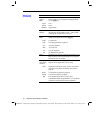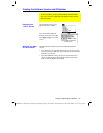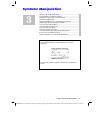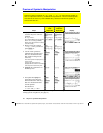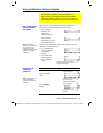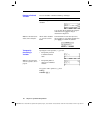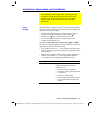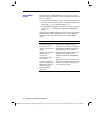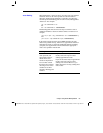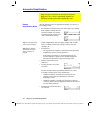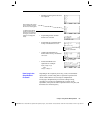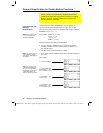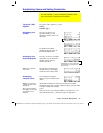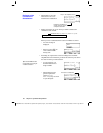
Chapter 3: Symbolic Manipulation 61
03SYMBOL.DOC TI-89/TI-92 Plus: Symbolic Manipulation (English) Susan Gullord Revised: 02/23/01 10:52 AM Printed: 02/23/01 2:12 PM Page 61 of 24
When
Exact/Approx = EXACT
, the
TI
-
89 / TI
-
92 Plus
uses exact rational
arithmetic with up to 614 digits in the numerator and 614 digits in the
denominator. The
EXACT
setting:
¦
Transforms irrational numbers to standard forms as much as
possible without approximating them. For example,
12
transforms to
2
3
and
ln(1000)
transforms to
3 ln(10)
.
¦
Converts floating-point numbers to rational numbers. For
example,
0.25
transforms to
1/4
.
The functions
solve
,
cSolve
,
zeros
,
cZeros
,
factor
,
∫
,
fMin
, and
fMax
use only exact symbolic algorithms. These functions do not compute
approximate solutions in the
EXACT
setting.
¦
Some equations, such as
2
–x
= x
, have solutions that cannot all be
finitely represented in terms of the functions and operators on the
TI
-
89 / TI
-
92 Plus
.
¦
With this kind of equation,
EXACT
will not compute approximate
solutions. For example,
2
–x
= x
has an approximate solution
x
≈
0.641186
, but it is not displayed in the
EXACT
setting.
Advantages Disadvantages
Results are exact. As you use more complicated rational
numbers and irrational constants,
calculations can:
¦
Use more memory, which may
exhaust the memory before a solution
is completed.
¦
Take more computing time.
¦
Produce bulky results that are harder
to comprehend than a floating-point
number.
Using Exact, Approximate, and Auto Modes
The Exact/Approx mode settings, which are described briefly
in Chapter 2, directly affect the precision and accuracy with
which the TI
-
89 / TI
-
92 Plus calculates a result. This section
describes these mode settings as they relate to symbolic
manipulation.
EXACT
Setting



